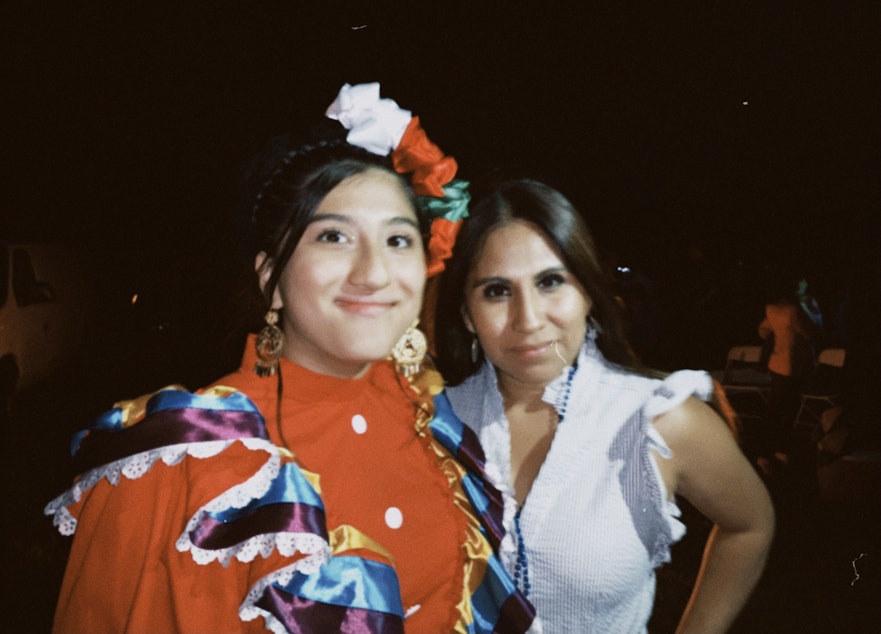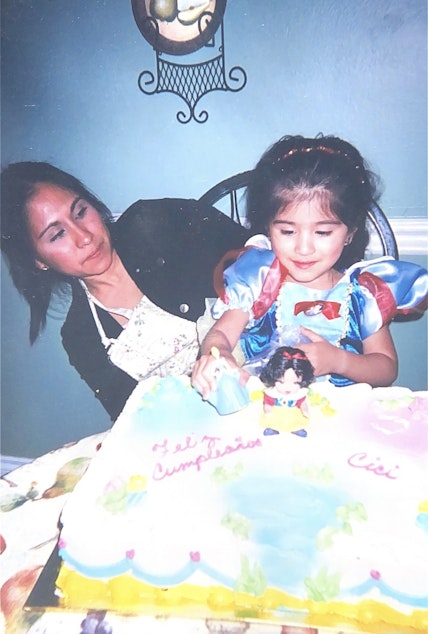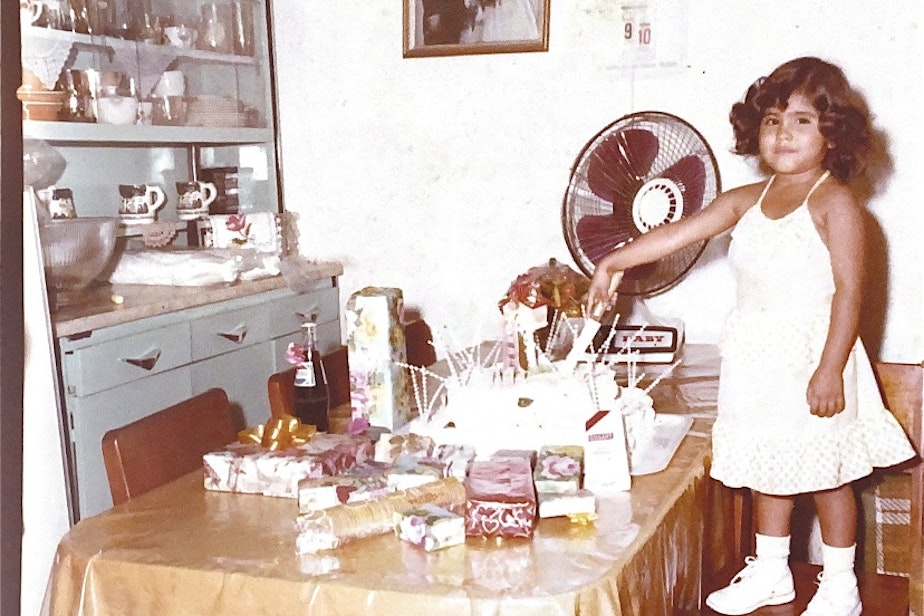Breaking the culture of silence: My eating disorder and my Mexican mother

When RadioActive's Eva Solorio was in middle school, she developed an eating disorder. Her mom, Ana Iglesias, stepped up to support her. And as Ana and Eva learned more about eating disorders, they confronted their own family's stigma against seeking care for mental health.
[RadioActive Youth Media is KUOW's radio journalism and audio storytelling program for young people. This episode was entirely youth-produced, from the writing to the audio editing.]
I
n my culture, eating dinner with family is the time we’re together. It helps us connect.
But this wasn’t the case for me.
For me, food was the enemy. I kept my eating disorder a secret, until one day my secret was revealed. My mom, Ana Iglesias, remembers the day she found out:
“Recuerdo que estaba trabajando cuando recibí una llamada de la escuela explicando me de como Eva – como tu – estabas actuando a la hora de lonche. Me tomó por sorpresa, la situación, y solo pregunte de qué manera le pudiera ayudarla,” she says.
“I remember that I was working when I received a phone call from the school explaining to me how Eva – how you – were acting during lunch time. It took me by surprise, the situation, and I only asked how I could help."
We never talked about mental health in our family, so my mom assumed we didn’t have any issues. That’s why my mom was stunned when she heard the news of my eating disorder from the school nurse.
“Me sentí perdida porque no tenía conocimiento el tipo la problema por lo que estabas pasando, y sobre todo que tu, como mi hija, no confiaras en hablar de este tema abiertamente conmigo. Porque aunque yo siempre estuve cerca, me perdí durante todo esto tiempo que estuviste pasando difícil,” she says.
“I felt lost because I had no knowledge of the type of problem you were going through, and above all, [having] you as my daughter not trust or speak of the topic openly with me. Because even though I was always close, I got lost during all this time when you were having a hard time.”
Just like my mom, I felt lost.

Sponsored
In my culture, food is how you communicate love. Growing up, my grandma would always greet me with a torta de frijoles or sopa. But I lost my ability to speak with my family.
Food was always welcome at the table, but mental health was not. My mom never talked about mental health, and it was mostly followed by shame in her family. She realized she had to start, for me.
“Después de que supe lo que te estaba pasando, para mi fue como una abrir de ojos de empezar actuar buscando ayuda y dar apoyo emocional y mucho comprensión. Aunque yo todavía en momentos, no sabía actuar,” she says.
“After I found out what was going on, for me it was like an eye-opening experience to start to act in finding help and to give emotional support. Even though in moments, I didn’t know how to act.”

She wasn’t sure how to help me, but she was determined to get answers. She fought to find me a therapist, despite judgement from family.
She broke the cycle of silence, not only in our family, but in other families too. Now, her friends go to her to ask for advice.
“Para mi ya en estos momentos ya no es difícil poder hablar de la salud mental. Y si a encontrado amistades que de pronto hablan de algún tema, y yo lo que les consejo es que tenemos que dejarnos de la ignorancia en pedir ayuda,” she told me.
“For me, in these moments, it’s no longer difficult to talk about mental health. And I've found friends that suddenly do talk about this topic, and I tell them that we have to let ourselves [let go] of the ignorance in asking for help.”
Even though the journey was difficult, I now call it a gift for my family. My mom broke through cultural norms of silence to get me the help that I needed.
Ultimately, I call it a recovery for the both of us.
Sponsored
This story was created in KUOW's RadioActive Online Intro to Radio Journalism Workshop for 15- to 18-year-olds, with production support from Mary Heisey and Charlotte Engrav. Prepared for the web by Charlotte Engrav. Edited by Sonya Harris. Consultation support by Paula Pessotto.
Find RadioActive on Facebook, Twitter, Instagram, TikTok, and on the RadioActive podcast.
Support for KUOW's RadioActive comes from the Bill & Melinda Gates Foundation Discovery Center.
If you have any feedback on this story, you can email RadioActive at radioactive@kuow.org or find RadioActive on Twitter @kuowradioactive. Or you can fill out the box below. Reach out. We're listening.



